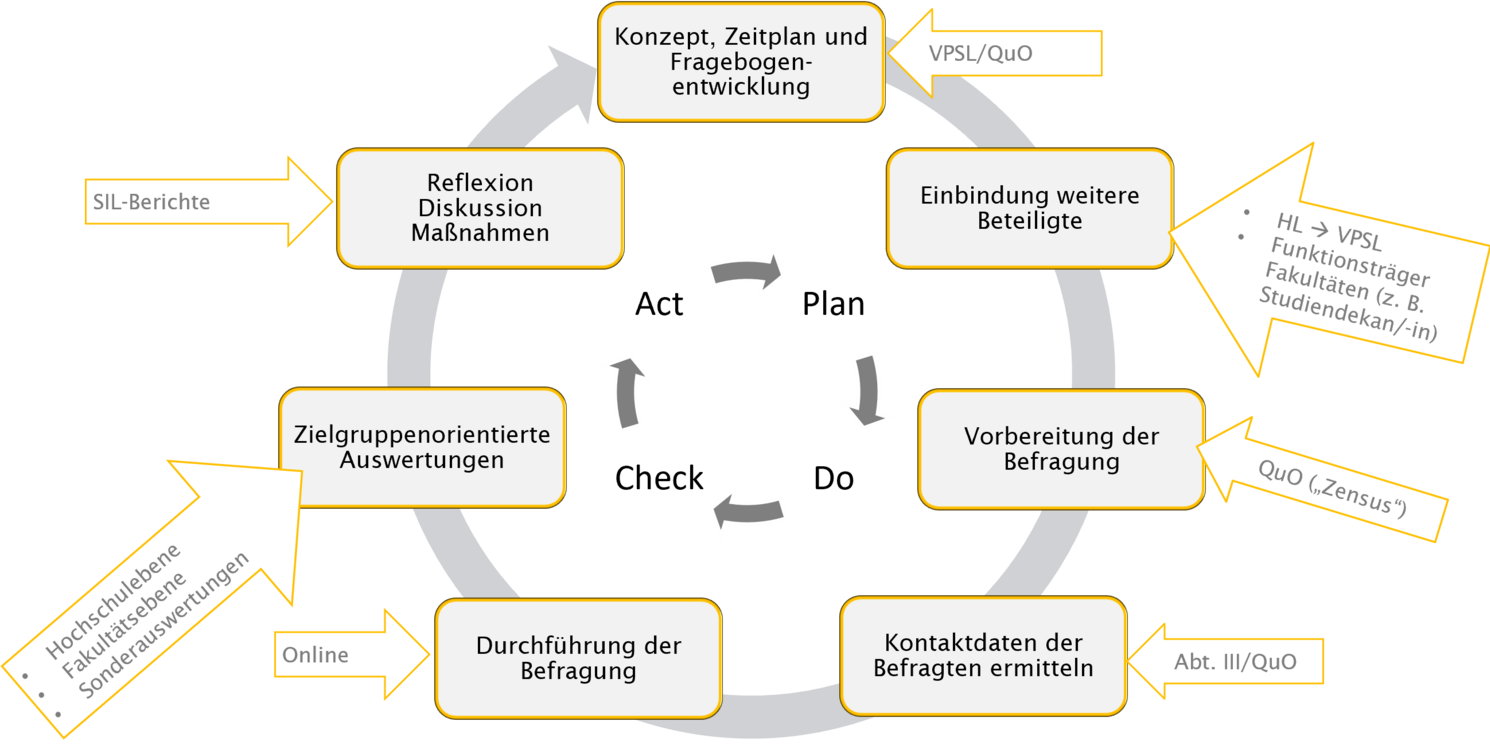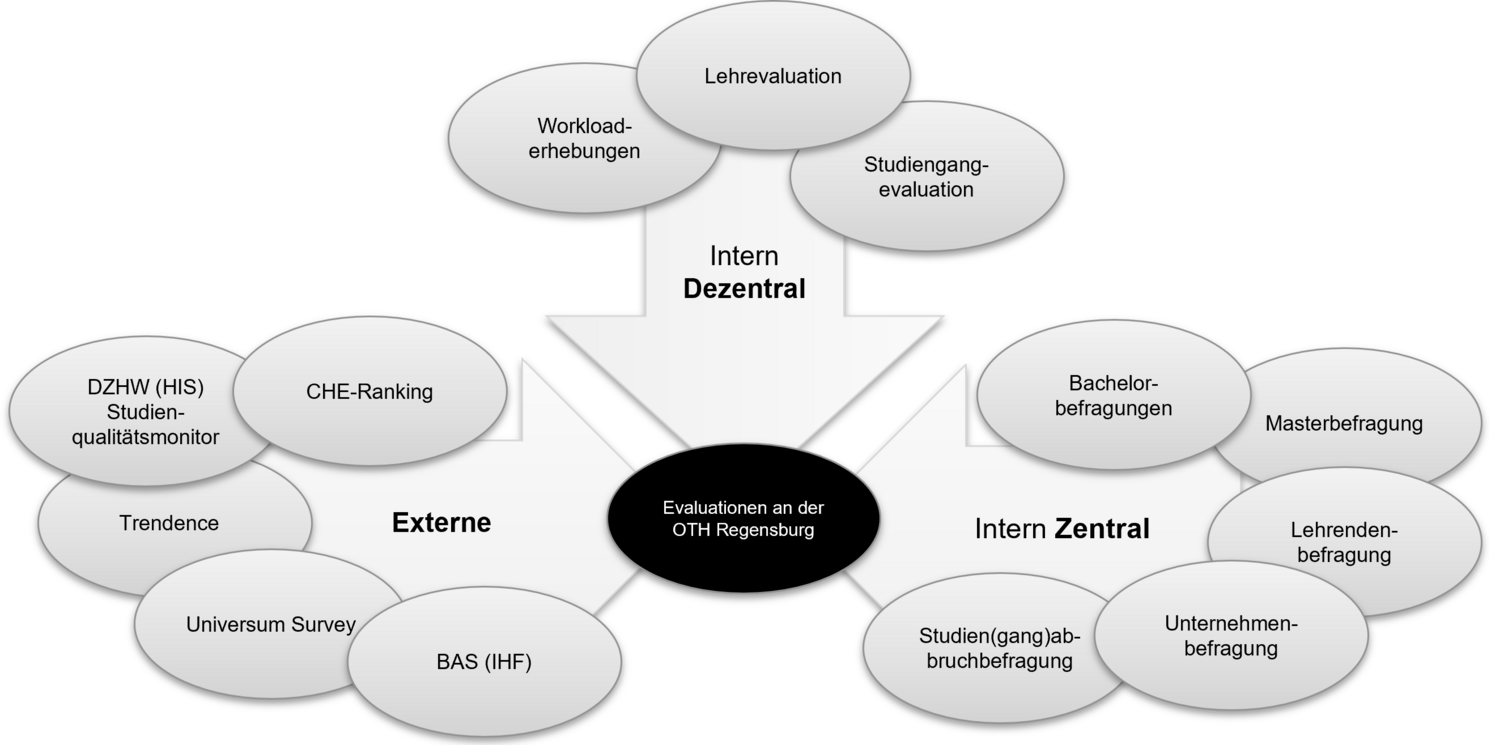Evaluations and surveys
Evaluation is a proven quality management tool that can be used to identify strengths and potential for improvement and subsequently derive and implement measures. As part of the quality assurance of studies and teaching, internal decentralized (faculty-internal) and centralized (cross-faculty) evaluations are systematically carried out at OTH Regensburg. The form, frequency and responsibilities are defined in the evaluation guidelines .
There are common principles for decentralized surveys, such as teaching, course and workload evaluations, but the procedures are carried out and evaluated independently by the faculties according to internal evaluation rules.
In addition, central evaluations are carried out by the Quality Management and Organization Unit. In order to achieve a holistic view along the "student life cycle", students are surveyed on a broad basis about the study programs in various study phases. In addition, further surveys are carried out on issues such as drop-outs and the situation of teaching staff. The feedback from the various surveys is evaluated on a scientific basis.
The university also participates in various external surveys and studies. In particular, OTH Regensburg takes part in the annual Bavarian Graduate Survey (BAS). This is carried out by the Bavarian State Institute for Higher Education Research and Planning. They provide the university with an external perspective. This enables a complete view of the quality of studies and teaching.
All results are prepared in a variety of ways for the various target groups within the university and for the public in a reporting system.
As part of the university-internal process for the internal award of the Accreditation Council seal for study programs (iSA process), the results of the cross-faculty internal and external surveys are incorporated into the SIL reports (reports on statistical indicators for teaching), which are sent to the faculties every year together with an analysis of strengths and weaknesses. This data forms the basis for the teaching reports, in which anomalies are discussed and subsequently rectified. Particular successes are also identified in the SIL reports. The data therefore forms the basis for continuous further development and improvement.

